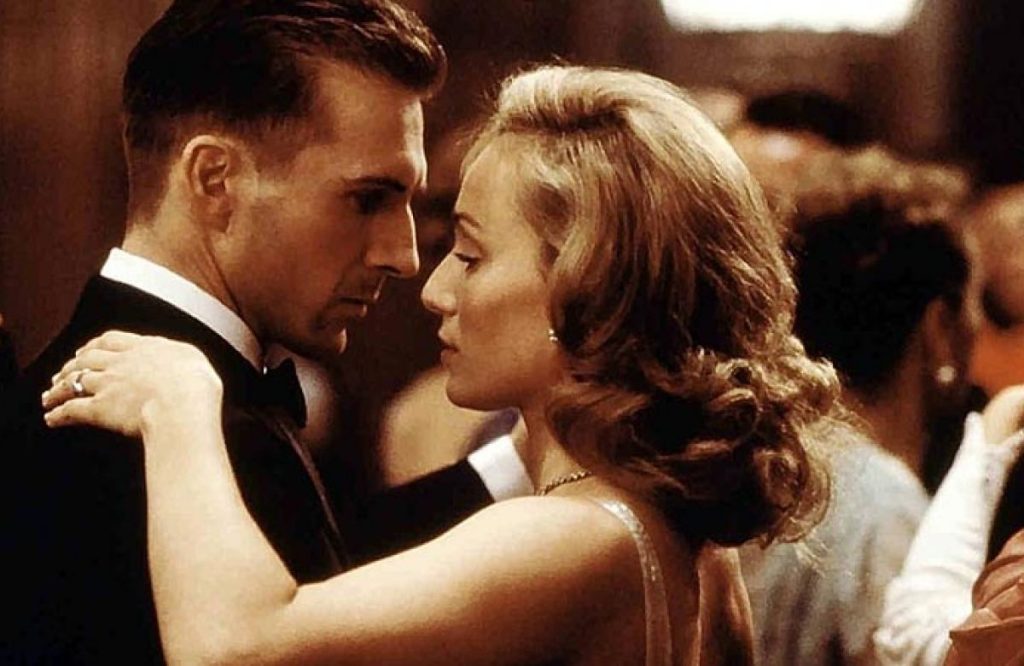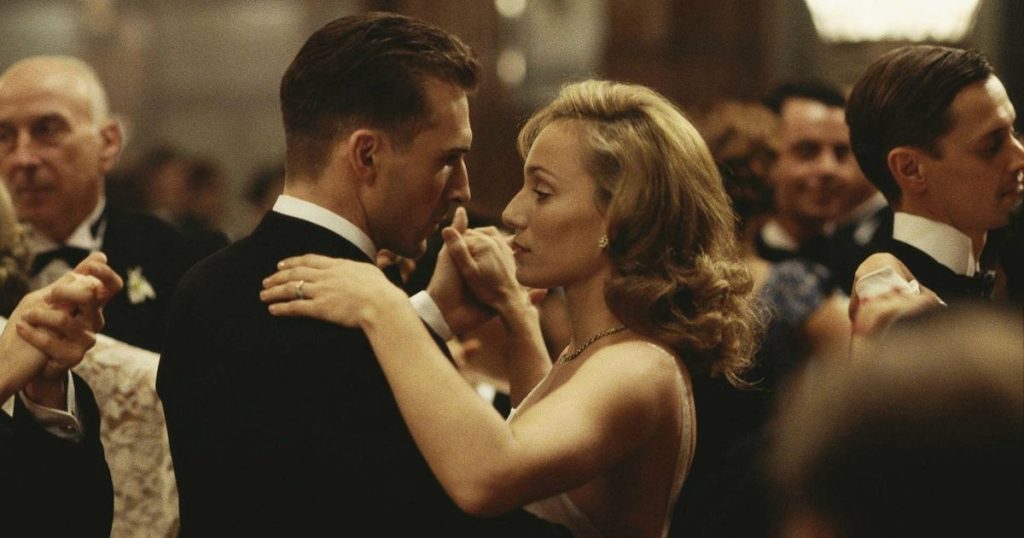There are countless films set against the backdrop of World War II, and not a few of them use this stage only to reflect on love. However, it is really rare to see something like “The English Patient”.
The most common themes of war films are of two kinds, one is the war for national independence, national survival and freedom of the people, the war of good and evil, – World War II because the two sides are clearly defined, the advocacy is also clear, so the theme of World War II is mostly this kind. The second is the reflective category, that is, the war, ordinary people are usually sacrificed, abandoned, plundered and slaughtered objects, through the war and most of the benefits are ambitious, – this is reflected in many such as the United States “Vietnam” film.
However, most films set in war are less subversive than this one: they simply let the interests of the state and nation stand aside, putting the individual above the national dispute.

A love affair that breaks with “tradition”
The multilingual Count Emmasch, a Hungarian geographer and historian, is on an archaeological mission in the Sahara Desert when he meets Geoffrey and his beautiful wife, an “aeronaut” recommended by the Royal Geographical Society to help draw maps. Katharine. Emmanuel and Kathleen have a mutual affection for each other, but the woman is after all a married woman, in the moral sense of restraint, the two people are forced to repress their feelings. But the more pressure something encounters, the more powerful the backlash, and this is especially true of love.
Finally, when Geoffrey leaves his wife to raise money in Rome, the two men, after much wandering, temporarily cross the moral barriers they have set up and share a bath of love. However, Catherine soon regretted her betrayal of her husband and decided to leave Emmanuel, which made Emmanuel very painful.
At this point, the war spreads. Soon after, Geoffrey comes to pick up Emmanuel in his plane and is about to land, when an accident happens. Geoffrey died on the spot, and Katharine, who came with the plane, was seriously injured. Emmanuel carried Katharine into the cave where he had found the original murals, and at this point Katharine confessed her love for Emmanuel without any fear. Emmanuel was overwhelmed with sadness and joy. The lovers finally have a chance to be together, but the woman faces the threat of death. Amarsh places Katharine in a cave and promises to get out of the desert in three days to find someone to save her.
Amarsh makes his way into the city and asks the British army guarding the city to rent him a car. His unusual, Austro-Hungarian surname aroused the suspicion of the British soldiers, and in his anger, he argued with them and was arrested as a German spy.
During the transport, Emmasch manages to escape, and in exchange for help from the German army, he provides the Germans with a valuable piece of information – a map of the Sahara desert – for the sake of the woman he loves and because of his revenge for being misunderstood by the British.
But because there was too much delay, when he arrived back in a British plane with German gasoline, all he found was Katharine’s gradually stiffening body. He flew up into the blue sky with Katharine in tow and was hit by the Germans again. After the plane caught fire, Emmanuel was badly burned and rescued by local Arabs, and then taken to an Allied hospital in Italy.
A total loss of memory and unable to identify himself, he was registered as a “British patient” because he spoke English.

A subversion of the “canonical” theme
The film is based on the novel of the same name by Canadian poet Michael Ondaatje. As a poet himself, the author wrote a novel that is poetic and picturesque, rather than a traditional linear narrative. The novel is interspersed with the stories of several major characters, and when the film was made, the director maintained this narrative and continued the poetry with a lush, exotic soundtrack and beautiful imagery.
The film begins with the plane catching fire, and as Emmanuel gradually regains his memory, inspired by Herodotus’ writings, it uses extensive montages to intersperse reality with memory, interspersed with the love story of an English nurse caring for Emmanuel and an Indian soldier. The camera moves between a small Italian town, the Sahara desert and Cairo, showing war, death, betrayal and love.
War is supposed to be an irrational act, but it can demand a very great deal of obedience and dedication from people. It is extremely difficult to remain independent in a state of war. It can bring disaster in the name of great justice, and I am afraid that this is the greatest harm war can do to people.

The original author chose such a special origin for the hero as a Hungarian nobleman in order to explore the deeper issues of country, nation and human nature.
It is important to know that Hungary was not only ruled by Austria before World War I, but in its history, it was occupied by Germans, Albanians, Slavs and Mazars. Between World War I and World War II, Hungary remained a multi-ethnic and politically volatile country, and at one point in World War II, Hungary joined the Axis group. As a result, Emmasch could ignore the boundaries of the so-called “pro” and “con” sides and make a deal with the German army for love and commitment.
In a general sense, his actions were not only audacious, but also indiscriminate. However, was it right or wrong? When the Allied spies accused him of killing ten million people because of his maps, he replied that (even if the Germans had not attacked successfully) ten million people would have been killed, just different people.

Born in a country whose borders and political situation had been unstable throughout history, he could think differently about the concept of nation-state. Moreover, his knowledge and perspective, having traveled around the world, having studied many languages, and having an excellent understanding of history and geography, allowed him to think more deeply than the average person, and in some ways he might even have gone against the mainstream.
He is a historian who has seen the changes in the world and has experienced the change of state power, so we can understand why the distinction between countries is worthless in his eyes, and there is no need for political positions to be constant. Solving the problems people encounter and protecting their love and lover are more important than those metaphysical ideas or concepts. The fact that he was treated as an Englishman after he was injured just shows that the meaning of nationality is not that worth defending.
In fact, Katharine had this same notion when she wrote in her suicide note, “The definition of a nation should be us (i.e., human beings), not national boundaries on a map.”
Even Anna, a nurse with less knowledge, instinctively abhors war because of the death of her lover and best friend, although she cannot sum up the “golden words” as concise and insightful as Emmash or Katharine.
Perhaps it can be said that this is exactly what the original story and the film are about: that the boundaries of the state are not something worth sacrificing for, and that maintaining humanity is the meaning of human existence.
